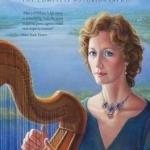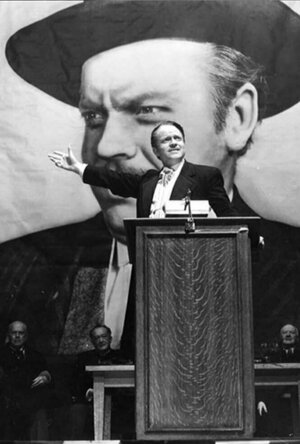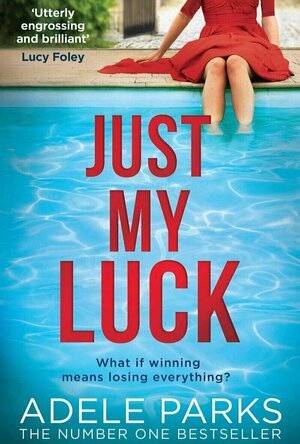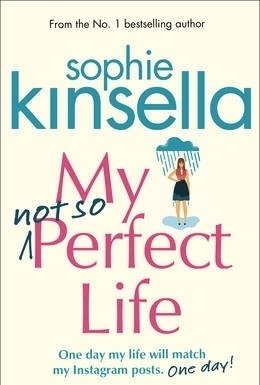
All Islamic Audio Stories Muslims Free
Book and Lifestyle
App
Get the largest collection of free All Islamic audio stories Muslims for your phone or tablet. Read...
BankofMarquis (1832 KP) rated Mank (2020) in Movies
Jan 7, 2021
And…the Netflix film MANK does not disappoint in this regard.
Starring Oscar winning actor Gary Oldman (he won the Oscar for portraying Sir Winston Churchill in DARKEST HOUR), Mank tells the tale of the writing of the screenplay of CITIZEN KANE by screenwriter Herman Mankiewicz. It is an intriguing story of a self-destructive, alcoholic artist (is there any other kind in this kind of film) that (ultimately) produces one of the best scripts in Hollywood history, despite (or maybe because of) his condition and the people he interacts with along the way.
Directed by David Fincher (FIGHT CLUB) - who is one of my favorite Directors working today - MANK starts slow but brews to a satisfying conclusion as Fincher focuses on the man and the relationships he has with the people around him, rather than the circumstances, which then draws to a forceful conclusion.
Gary Oldman is, of course, stellar as Herman “Mank” Mankiewicz, the writer at the center of the story. This film hinges on this performance as the titular Mank is in almost every scene of this film - and at the beginning I was worried that Fincher was going to let Oldman revert to his “hammy” ways (a very real possibility with Oldman if he is left unchecked by a Director), but Fincher reels Oldman in just enough for him to bring a portrait of a troubled man, who has sold his soul to work and alcohol. This character needs to find that soul if he is to succeed. Since Mank won the Oscar for his screenplay - and I’ve already stated that I think the CITIZEN KANE screenplay is one of the best written of all time - you know how it will turn out, but it is fascinating (and satisfying) to watch Oldman on this journey.
Fincher, of course, is smart enough to surround Oldman with some very good Supporting Actors, most notably the always evil Charles Dance (Tywin Lannister on GAME OF THRONES) as William Randolph Hearst (the inspiration for Charles Foster Kane). Dance spends most of the film observing Mank but in the final “confrontation” scene between the two, the screen sparkles as two wonderful thespians throw down.
Others in the Supporting cast - like Lilly Collins, Tom Burke (as Orson Welles), Jamie McShane and, especially Arliss Howard (as Louis B. Mayer) bring heft and the ability to go “toe to toe” with Oldman, not a small task.
Special notice has to be made of the work of Amanda Seyfried as Marion Davies - Hearst’s mistress and a character that is used as a “throw away toy” in Citizen Kane. Davis and Mank form an interesting bond and the platonic chemistry between Seyfried and Oldman is strong. I gotta admit that when Seyfried first burst on the scene in such films as MAMA MIA and MEAN GIRLS, I figured she was just the “pretty young Rom-Com girl of the time” and would come and go quickly, but she has rounded into a very impressive actress and I can unequivocally state that I was wrong about her. She can act with the best of them.
The Cinematography by Erik Messerschmidt is also a very important part of this film - as he (and Fincher) attempt to recreate in this film the look/feel of CITIZEN KANE and they pull this off very, very well.
If you can get through the slow start of the film - and if you can stomach a protagonist that is not a very nice person in most of this film, than you’ll be rewarded by a rich film experience.
Letter Grade: A-
8 stars (out of10) and you can take that to the Bank(ofMarquis)
Ivana A. | Diary of Difference (1171 KP) rated Just My Luck in Books
Aug 3, 2020
<a href="https://diaryofdifference.com/">Blog</a>; | <a href="https://www.facebook.com/diaryofdifference/">Facebook</a>; | <a href="https://twitter.com/DiaryDifference">Twitter</a>; | <a href="https://www.instagram.com/diaryofdifference/">Instagram</a>; | <a href="https://www.pinterest.co.uk/diaryofdifference/pins/">Pinterest</a>;
<img src="https://i1.wp.com/diaryofdifference.com/wp-content/uploads/2020/05/Book-Review-Banner-47.png?resize=768%2C432&ssl=1"/>;
<b><i>What would you do if you win the lottery?</i></b>
What happens when a person suddenly has a chance to be rich? Just My Luck by Adele Parks is a brutal book about bad luck, betrayals, friendships and most importantly – how life can change in just one moment.
For fifteen years, Lexi and Jake have played the same six numbers with their friends. Over dinners, they have discussed many important things over the years: kids, marriages, houses and jobs… But one Saturday night, there is an argument in the group. Someone is lying. And then, six numbers come up on the lottery that are about to change everything.
Lexi and Jake have the winning ticket for almost £18 million. And their friends want their share in it…
<b><i>My Thoughts:</i></b>
I dived into this book completely unprepared. I only knew that someone wins the lottery, but I wasn’t too familiar with the synopsis. And trust me – it was better for me to explore it all throughout the book.
We follow the story mostly focused on Lexi’s point of view, however, we also get a glimpse of other people’s stories as well, which I think for me was refreshing and kept the pace moving in a nice manner.
Not only do we meet different characters in this book, but we also meet different personalities, with different motivations, dreams and life goals. When Lexi and Jake realised they have won the lottery, they both behave in a very different way.
Lexi is the one that wants to keep things as normal as they are, plan for their future, have small luxuries and then keep the rest of the money mostly as savings, and donate some of it to charity and try to help other people.
Jake, on the other side, wants to enjoy the money they won, and spend it on a new house, new car, be part of the upper class and hire driver services for his children, when they move to a private school.
The relationship between Lexi and Jake will begin to change, as they both will change during this period. This book is a perfect summary of what money may actually do to people and relationships, and how it may help them or destroy them completely.
I loved the drama where the friends were involved as well, also when the children played their part as well into the whole situation. It is crazy to see how easily children can be manipulated by words and wealth too, in their own little worlds.
I really wished I have seen more of Toma’s story and point of view, and had a proper closure to his chapter. His story was definitely my favorite one for sure!
<b><i>If you are a fan of thrillers and drama, you will definitely enjoy this book. It will keep you on the edge until the very last chapter. And that last chapter will change everything! Let me know once you’ve read it, because I am dying to talk to someone about that last revelation!</i></b>
I am extremely lucky to be part of the blog tour organised by the amazing team at HQ! Thank you for this opportunity, and thank you for sending me this book in exchange for my review! Check out the other amazing participants of this blog tour as well:
<img src="https://i1.wp.com/diaryofdifference.com/wp-content/uploads/2020/05/JUST-MY-LUCK-BTB.jpg?resize=594%2C1536&ssl=1"/>;
<a href="https://amzn.to/2Wi7amb">Wishlist</a>; | <a
<a href="https://diaryofdifference.com/">Blog</a>; | <a href="https://www.facebook.com/diaryofdifference/">Facebook</a>; | <a href="https://twitter.com/DiaryDifference">Twitter</a>; | <a href="https://www.instagram.com/diaryofdifference/">Instagram</a>; | <a href="https://www.pinterest.co.uk/diaryofdifference/pins/">Pinterest</a>;
Kristy H (1252 KP) rated My Not So Perfect Life: A Novel in Books
Feb 1, 2018
I'm not a Sophie Kinsella disciple (I haven't even read the Shopaholic series, don't kill me), but this book was so popular among my Goodreads friends that I couldn't help but pick it up. <i>It's certainly a cute, entertaining read</i>, based mainly on the strength of her main character.
There's something about Katie. She can be irritating, but she's gutsy and smart. She has dreams and goals, and she truly wants to achieve them. She's also insightful and kind. You can't help but be drawn to her and root for her character. It also helps that she's not spoiled, like so many of her co-workers and the people she encounters. While the book may play on the "rich" versus "poor" dichotomy a bit much, it's clear that Katie is fairly grounded, and you like her all the more for it.
The book certainly has some comedic moments, which I wasn't completely expecting, and Katie even has a bit of a dry wit. Things definitely move along in a bit of a cliched fashion sometimes, with Katie's realizations about life coming a tad too easily at moments. Still, there's a little twist in the plot that I didn't see coming that engages you and keeps the last quarter of the novel moving quite briskly.
Overall, the book winds up all its loose ends way too easily, but, of course, you really wouldn't have it any other way. I found myself grinning goofily in a few parts, because I'm totally a sucker for stories like these sometimes. Katie is endearing, her romance is fun, and the plot moves quickly and easily. This was an enjoyable, breezy read, and I'm glad I picked it up. 3.5 stars.
<center><a href="http://justacatandabookatherside.blogspot.com/">Blog</a>; ~ <a href="https://twitter.com/mwcmoto">Twitter</a>; ~ <a href="https://www.facebook.com/justacatandabook/">Facebook</a>; ~ <a href="https://plus.google.com/u/0/+KristyHamiltonbooks">Google+</a></center>;
BankofMarquis (1832 KP) rated Roman J. Israel, Esq. (2018) in Movies
Feb 23, 2018
And thank goodness he is in this film for I found precious little else to recommend in this movie.
ROMAN J. ISRAEL, ESQ. tells the story of...ahem...Roman J. Israel, Esq, a "savant" legal attorney (some would call him autistic) who has spent the past many, many years as the behind the scenes lawyer in a rundown 2 person law firm that specializes in defending "the little guy". When his partner unexpectedly dies, Roman is thrust into the world of big time, big business and big MONEY law and when Roman is sucked into this world he suffers a crisis of conscience and must decide between the luxuries that this new, rich life affords and the idealism that has driven him for all these many years.
In lesser hands, this character could have been maudlin or cloying - but in Washington's seasoned hands, this character jumps off the page as a quirky and different sort of person - a genius to be sure - but a troubled genius. One that is more comfortable alone, in his library with his books and legal briefs than with people. Washington threads the needle very well in his portrayal making Roman J. Israel seem like a real person and not just a character.
Also strong is Colin Farrell as the head of the Big Business Law Firm that Roman ends up working for. Farrell has grown as an actor in my eyes - and his portrayal of George Pierce shows a another real person behind the suit and not just a 2 dimensional caricature. Also along for the ride is Carmen Ejogo in an underwritten part as a young idealistic lawyer - and potential love interest for Roman - who reminds Roman of his younger self.
But, despite these performances, the film falls flat because - besides Roman's crisis of conscience - nothing else really happens.
The blame for this has to lie at the hands of screenwriter and director Dan Gilroy (the wonderful, underrated - and underseen - NIGHTCRAWLER). He is fascinated by the intricacies of Roman's world but fails to flesh it out. It's almost as if he was so interested in creating the trees, he never created a forest interesting enough for these trees to live in - or for us to visit.
So come for Denzel, but be warned, if you stay there's not much else to stay for.
Letter Grade B- (because of Denzel's performance)
6 (out of 10) stars and you can take that to the Bank(ofMarquis)
Cynthia Armistead (17 KP) rated All Clear (All Clear, #2) in Books
Mar 1, 2018
It is still a large book! And, as in [b:Blackout|6506307|Blackout|Connie Willis|https://d.gr-assets.com/books/1402428101s/6506307.jpg|6697901], it isn't always clear just who a character is. I'm reading along happily and all of a sudden, there's a new main character! Wait, who is this? Has Colin gotten through somehow? Or is it another historian? Or another trip by one of the people we already know? Or--but--…Ms. Willis does a marvelous job of keeping us guessing. And the historians' habit of using different names on different assignments meant that I didn't always know which person I was reading about even when I thought I did know who he or she was! The reader has to catch the tiniest details to know that something isn't quite right, or be left completely surprised at the reveal! The many references to [a:Agatha Christie|123715|Agatha Christie|https://d.gr-assets.com/authors/1321738793p2/123715.jpg] are definitely meaningful, and I've come to believe that I haven't read nearly enough of her work!
I've always considered Ms. Willis a cerebral author, but my emotions were heavily engaged here. The analogy of Polly, Sir Godfrey, and <i>The Admirable Crichton</i> was so apt, and that dreadful business in the Phoenix had me bawling. By the time a hero we'd grown to know and love dearly fell, and fell so, so close to home, I was a basket case.
After finishing this massive duology (which really should count as one enormous book spread across two volumes), you would think that I would be sick and tired of all things Willis and not want to read another word by her for the next year or so. Instead, I want to know, right now, what comes next. I want to read about Eileen and the Vicar, and watch Alf and Binnie grow up. I want to see Polly and Colin's relationship grow.
I imagine Ms. Willis is rather tired of all of them, though, and happy to rest for a while and remember what it is to live back in this century again. The Oxford Time Travel universe offers so many rich and fascinating possibilities for fiction, and I hope she chooses to write many more novels set in it. I'll definitely be willing to read them!
Sophia (Bookwyrming Thoughts) (530 KP) rated Grandmaster in Books
Jan 23, 2020
It is also a book that I have completely mixed feelings about a book that I completely relate to as a chess player (I AM a girl, thank you very much), <b><i>Grandmaster</i> deals with the darker side of chess at the higher level competition in a thriller-like fashion</b>. As the book goes from start to end and the tournament gets closer to the final round, you can literally tell from Klass' writing that the tension among the competitors are growing along with the excitement at the possibility of seeing two rival grandmasters from several decades facing off each other in the final round.
<i>Grandmaster</i> did have a few imperfections, much as Klass' writing was engrossing and highly interesting there were quite a few clichés and stereotypes, and the majority of the characters were so annoying, I had some tendency to not finish the book simply because of the characters.
Everyone makes this particular tournament a whoppingly huge deal and we have players from all walks of life, particularly the extremely snobby ones from the rich and wealthy. Of all the rounds Klass talks about, almost all of the players faced someone snobby every once in a blue moon there would be a player who was at the very least friendly.
Most of the characters are extremely competitive and have a temper of sorts Dr. Chisolm and Mr. Kinney throw insults at Grandmaster Pratzer, and Brad and Eric (the stereotypes of playboy and lazy bum superstar) make fun of Daniel. Mr. Kinney in particularly is the most competitive of all and probably the next Christian Grey with the way he orders people around don't get me started on that.
And each time the characters lose, all of them (aside from Daniel) are literally on the verge of losing control. From stomping out, turning angrily red, huffing and puffing Klass might even be sending a subtle message about having good sportsmanship.
As the tournament and the book draws to a close, the book does get better the characters finally get their act together and make some changes (though they don't change so much that it becomes unrealistic). The ending is a happily ever after, a nice comparison to the high stakes and pressures of a chess tournament that Klass reveals throughout.
<blockquote>If you're up against a strong player get him off the book and make him think for himself.</blockquote>
<a href="https://bookwyrmingthoughts.com/review-grandmaster-by-david-klass/"; target="_blank">This review was originally posted on Bookwyrming Thoughts</a>

Travels with My Harp: The Complete Autobiography
Book
Mary O'Hara's life story is something only the most inspired press agent could ever hope to concoct'...

Into the Wind: My Six-Month Journey Wandering the World for Life's Purpose
Book
Without a map, nineteen-year-old Jake Ducey leaves behind a drug-filled life and college basketball...

Lonely Planet Hiking & Tramping in New Zealand
Lonely Planet, Sarah Bennett, Lee Slater and Jim DuFresne
Book
Lonely Planet: The world's leading travel guide publisher Lonely Planet Hiking & Tramping in New...




